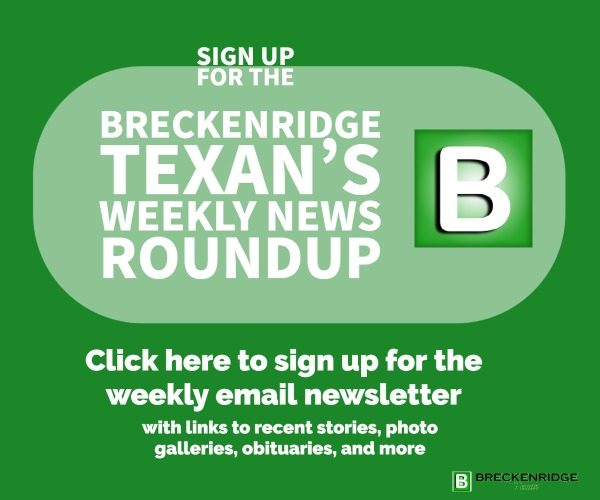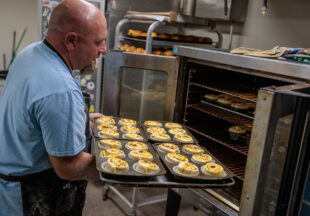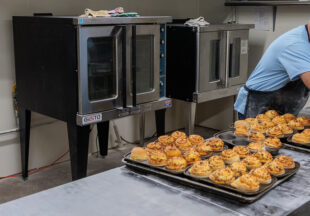Texas Supreme Court says it can’t force the state to process deluge of applications for tax break expiring this year

By Brian Lopez/The Texas Tribune
The Texas Supreme Court declined Friday to intervene in a request from two renewable energy firms that say they’ll miss out on millions of dollars in tax savings from a program set to expire this year because an overwhelmed state agency failed to process their application in time.
The Texas comptroller’s office had until Dec. 31 to get companies into the program, known as Chapter 313, and give them a 10-year discount on their property taxes.
The two companies that went to the court, Stetson Renewables Holdings LLC and Ogallala Renewable Project LLC, submitted their applications for more than $20 million in tax savings in May 2022. Soon after, they received confirmation that their applications were received and they were eligible for incentives.
But after eligibility is determined, the comptroller’s office is required to conduct an economic impact evaluation on the application within 90 days, the companies said in their request to the court. The companies asserted that the comptroller’s office — swamped with applications seeking approval — failed to complete the review in time, which resulted in the denial of the two firms’ applications.
The companies sought relief from the Texas Supreme Court, but the court said Friday that the matter was outside its jurisdiction and that lawmakers should decide whether to give new directions to the comptroller’s office.
“Even after December 31 passes, the legislature, if it chooses, could require that all timely filed applications be deemed approved. Or it could retroactively waive the December 31 deadline for any application that was otherwise timely filed and direct the Comptroller to continue processing those applications. Or the legislature could revive access to the program for everyone, either for a set period or permanently,” Justice Evan A. Young wrote. “Under the statute as it stands, however, any such relief would trespass beyond the judicial realm and into the policy decisions that are proper for the other branches.”
In 2021, the Legislature opted to let the Chapter 313 program die after complaints that it amounted to “corporate welfare.” The program provides billions of dollars in property tax breaks to businesses moving to Texas.
Going into the final year of the program, Texas Comptroller Glenn Hegar said that his office has seen an “extraordinary number of applications from companies seeking to secure an incentive under the current program.” He noted his staff had to manage a workload that has significantly increased in the past six months, despite no additional staffing support from the Legislature.
In explaining its decision not to intervene, the court also noted that it didn’t seem the comptroller’s office acted out of malice when it failed to process the two firms’ Chapter 313 applications in time.
“Nothing suggests that the Comptroller refused to proceed out of a desire to harm [the renewable energy firms] or because he opposes Chapter 313. Instead, he contends, he has done and is doing all that can be done under the circumstances,” Young wrote.
The companies’ attorneys declined to comment Friday.
A spokesperson for the comptroller’s office said it was pleased with the court’s decision and “grateful for the clarity it has provided on this issue.”
Under the Chapter 313 program, manufacturing and energy companies apply to local school districts for a 10-year discount on their property tax bills in exchange for building or expanding in the community and, in a number of cases, creating new jobs. The Texas comptroller’s office must also approve those agreements.
There’s no downside for school districts to approve the tax breaks because any foregone revenue for public schools is made up for by the state. That shift of state dollars, critics say, leaves less money on the table for other state services, such as health care or public safety.
Schools can also sign agreements directly with the companies for a supplemental payment in exchange for approving the tax break, which critics say fosters inequity in funding among school districts.
The two renewable energy companies filed Chapter 313 applications for wind and solar energy projects located in five different independent school districts across Texas: Bynum ISD, Hart ISD, Holliday ISD, Miller Grove ISD and Sulphur Springs ISD. They were informed of their denials earlier this month.
The companies claim in the filing that their applications were rejected, even though some companies — including the electric car company Tesla, owned by Elon Musk — applied for the savings after them and were still approved. Tesla applied for the tax break to build a plant that produces battery-grade lithium hydroxide.
“The Comptroller’s failure to perform his statutory obligations and issue Certificates is jeopardizing approximately $773,550,000 in proposed capital investments in Texas, $27,001,784 in projected incentives, and projected minimum tax and other payments of $29,676,600 to the school districts,” the filing says.
Cutline, top photo: State Comptroller Glenn Hegar speaks at The Texas Tribune Festival on Sept. 23. The Texas Supreme Court declined Friday to intervene in two companies’ requests to force the comptroller’s office to process their applications for a tax break expiring this year. Hegar has said his office has seen “an extraordinary number of applications seeking to secure” the incentive. (Photo by Eddie Gaspar/The Texas Tribune)
This article originally appeared in The Texas Tribune at https://www.texastribune.org/2022/12/30/texas-supreme-court-chapter-313-tax-breaks/.
The Texas Tribune is a member-supported, nonpartisan newsroom informing and engaging Texans on state politics and policy. Learn more at texastribune.org.































































































